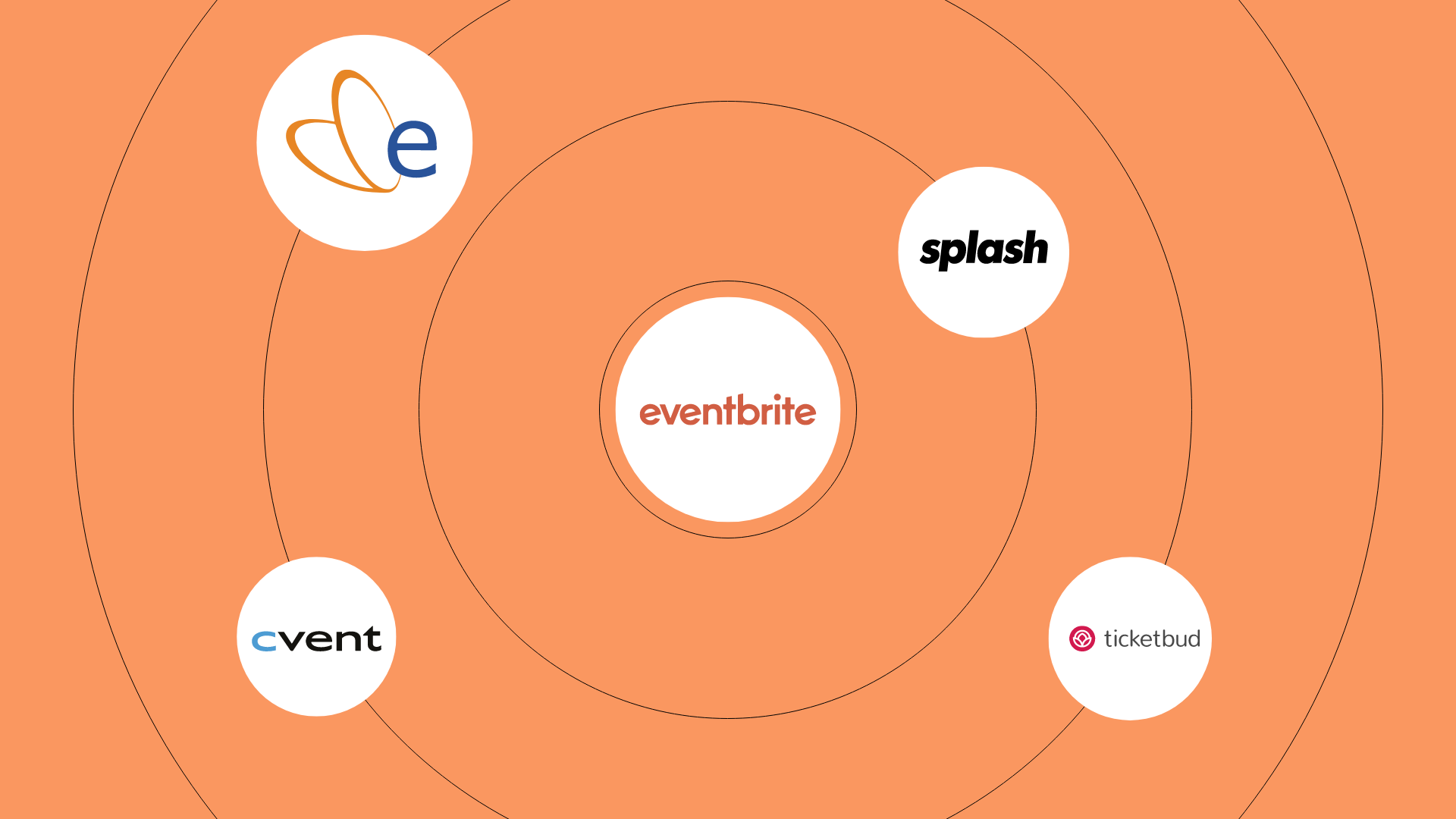In the future of event planning, the year 2024 will bring forward a wide array of alternative platforms to Eventbrite for organizing stellar events. With the escalating demand for remarkable experiences and seamless event planning, there’s a growing number of platforms that are giving Eventbrite a run for its money. One of these is Splash, a platform that offers incredible customization options.
Splash is a comprehensive, user-friendly platform that allows event organizers to create customized, creative event pages, manage guest lists, and track event analytics. Another platform that’s gaining traction is Peatix, which has a more community-focused approach to event planning. Peatix provides a platform where event organizers can create, sell tickets, and promote their events within a community of similar interest groups, providing a more personalized and engaging experience.
Ticketbud is another commendable alternative to Eventbrite, particularly for non-profit organizations. It offers competitive rates, comprehensive ticketing features, and an easy-to-navigate interface. Its unique selling point is its ability to provide organizers with immediate access to ticket revenue, a feature that’s not commonly offered by other platforms. Then there’s Billetto, a UK-based platform that not only provides event registration and ticketing services but also promotes events through its online event discovery community, helping to increase visibility and attendance. Billetto also offers a variety of ticket types, including free, paid, and donation-based, making it a versatile option for a range of events.
For a more social media-integrated approach, there’s Picatic, a platform that allows event organizers to sell tickets directly from websites and social media pages. With its intuitive interface and detailed analytics, Picatic helps event organizers streamline their marketing efforts and track their success with ease.
Finally, there’s Hopin, an online events platform that’s making waves in the industry. Hopin allows event organizers to recreate the in-person event experience online, with features like virtual stages, networking areas, and vendor booths. This platform is the perfect solution for a world where online and hybrid events are becoming the norm.
In 2024, the event planning landscape will be more diverse, integrated, and user-friendly than ever before. The rise of alternative platforms to Eventbrite will challenge event organizers to rethink their strategies, adapt to new technologies, and create even more memorable experiences for their attendees.
These platforms are not just alternatives; they are vital tools that can empower organizers to take their events to the next level. As we look to the future, it’s clear that the possibilities for event planning are as boundless as our creativity and ambition allow.

Top Event Planning Tools Beyond Eventbrite for 2024
In the realm of event management, the landscape has significantly evolved, offering a wealth of sophisticated tools that go beyond the capabilities of Eventbrite. As we look to 2024, the field will be dominated by platforms that provide comprehensive solutions for planning, managing, and executing events efficiently.
Foremost among these tools is Cvent, a robust software that not only facilitates online ticketing but also offers a myriad of features including venue sourcing, event registration, and detailed analytics. It’s an ideal choice for large-scale professional events requiring customized and complex planning.
Another noteworthy tool is Bizzabo, which shines in its ability to integrate event planning with promotional activities. Its key features include attendee engagement, networking tools, personalized agendas, and event website creation. Bizzabo is a perfect fit for marketers who want to leverage events to drive brand engagement and customer loyalty.
For those seeking a more simplified and intuitive interface, Trello is a top pick. Although not exclusively an event planning tool, its project management capabilities make it an excellent choice for organizing tasks related to event planning. It allows you to create boards for different event aspects, assign tasks, and set deadlines, ensuring a seamless planning process.
Whova is another tool that has gained popularity for its comprehensive event management features. It offers a mobile event app, online registration, event marketing, and time-saving management tools. Whova is particularly useful for academic conferences, expos, and corporate events.
Lastly, Monday.com, a work operating system (Work OS), allows users to create workflow apps in minutes to run their processes, projects, and everyday work. This tool is perfect for event planners who need to collaborate with teams, organize tasks, and track the progress of multiple events simultaneously.
In conclusion, as we approach 2024, it is evident that the scope of event planning tools is expanding well beyond Eventbrite. By leveraging these advanced platforms, event planners are better equipped to create memorable experiences that meet the evolving expectations of attendees.
Event Management Platforms to Consider Besides Eventbrite
Event management platforms are essential tools for planning, organizing, and executing successful events. While Eventbrite, with its user-friendly interface and robust features, is a popular choice, there are other platforms worth considering. Cvent, for example, offers a comprehensive suite of tools that cater to a wide range of event planning needs.
With its detailed analytics, it allows organizers to gain insights into attendees’ behavior, measure event success, and make data-driven decisions. Another platform to consider is Bizzabo, which enables seamless event planning with its integrated platform. From creating event websites to managing registrations and conducting surveys, Bizzabo offers an all-in-one solution.
For those seeking a more specialized platform, Hopin offers a robust solution for virtual events. Its interactive features provide an engaging environment for virtual attendees and its broadcast quality video capability ensures a professional presentation. Another platform, Whova, is designed to boost attendee engagement by offering networking opportunities, interactive agendas, and real-time updates. It also allows for event branding, helping organizers create a unique identity for their event.
Then there is Splash, a platform known for its powerful design tools. Splash allows organizers to create stunning event websites and emails that reflect their brand’s aesthetic, all with no coding required. It also offers robust attendee management features including personalized invitations, guest list management, and ticketing.
Lastly, consider Tito, a platform that focuses on simplicity and ease of use. Tito offers seamless ticketing, clear event analytics, and easy integration with other tools such as Slack and Google Analytics.
In conclusion, while Eventbrite is a strong contender in the realm of event management platforms, there are distinct alternatives that cater to different needs and preferences. From comprehensive offerings like Cvent and Bizzabo, to specialized solutions like Hopin and Whova, to design-focused platforms like Splash and ease-focused services like Tito, there are many platforms to choose from to ensure a successful event.

Innovative Event Management Software for 2024
As we advance toward 2024, the event management industry is expected to witness an influx of innovative software solutions designed to streamline processes and enhance attendee experiences. These next-generation tools will likely leverage emerging technologies such as artificial intelligence, augmented reality, and blockchain to redefine the way events are planned, executed, and evaluated. For instance, AI-enabled software could automate time-consuming tasks like attendee registration and ticketing, while AR could be used to create immersive virtual environments for online events or enhance physical venues with interactive digital elements.
Blockchain, on the other hand, could offer secure, transparent solutions for ticket sales, preventing fraud and ensuring fair pricing. In terms of data analysis, predictive analytics tools could help event organizers more accurately forecast attendance, optimize resources, and measure success.
Moreover, these innovative software solutions are expected to offer greater integration capabilities, allowing event planners to seamlessly connect various aspects of event management such as venue sourcing, catering, participant engagement, and logistics.
This will not only save time and effort but also enhance the accuracy and efficiency of event planning and execution. Furthermore, with the growing trend towards sustainability, it is anticipated that future event management software will also include features that help event organizers plan and execute environmentally-friendly events, such as waste management modules or carbon footprint calculators.
In addition, given the increasing importance of virtual and hybrid events in the post-pandemic world, the software solutions of 2024 are likely to be built with these formats in mind. This could mean features that facilitate virtual networking, interactive online sessions, and the seamless blending of online and offline event elements. By harnessing these innovative technologies, event management software in 2024 will not only streamline the event planning process but also significantly enhance the event experience for attendees, making events more engaging, immersive, and memorable.
Cost-Effective Event Planning Solutions
Planning an event, be it small or large-scale, often comes with a hefty price tag. However, with smart, cost-effective solutions, it’s possible to orchestrate a successful event without breaking the bank. The first step towards cost-efficient event planning is budgeting.
It allows for an understanding of the financial resources available and how best to allocate them to various event aspects. Embracing the use of technology also proves beneficial as it streamlines processes and reduces labor costs. Event management software, for example, can help manage guest lists, registrations, and ticketing efficiently.
Another cost-effective strategy is finding sponsors for the event. Partnerships with businesses relevant to the event theme not only help defray costs but also add credibility and draw a larger audience. Furthermore, being flexible with the event date can allow for negotiation on venue costs, particularly during off-peak times.
Additionally, it’s essential to prioritize the event elements. Not all aspects carry the same weight; hence, it’s vital to identify which areas require significant investment and which ones can do with less. For instance, if the event’s success heavily relies on guest speakers, it may be worthwhile to allocate a significant portion of the budget to securing high-profile speakers.
Going green is another cost-effective solution. Digital invitations, online registrations, and promotions on social media platforms not only reduce paper costs but also offer an efficient way to reach a wider audience.
Finally, carefully selecting vendors and negotiating deals can result in substantial savings. One can enlist the services of budding entrepreneurs who offer competitive prices in a bid to build their portfolios. Alternatively, opting for a package deal from a single provider covering various services like catering, decor, and sound could potentially be more economical.
In conclusion, with careful planning, creative solutions, and strategic decisions, it’s entirely feasible to plan an outstanding event that leaves a lasting impression without exceeding budget constraints.

User-Friendly Platforms for Seamless Event Organization
Event organization can often be a complex task, requiring careful planning, coordination, and management. Thankfully, the digital age has brought with it a plethora of user-friendly platforms that aim to simplify and streamline the process. These platforms, such as Eventbrite, Meetup, and Cvent, offer a seamless experience for event organizers, encompassing all stages from planning to execution. They are designed with intuitive interfaces, providing users with easy-to-navigate tools and features. These platforms offer comprehensive solutions for a wide range of events, including corporate meetings, conventions, weddings, and parties.
Eventbrite, for example, enables organizers to create customized event pages, sell tickets, and manage attendees all within the same platform. Its integrated payment processing feature also ensures that the financial aspects of event organization are handled efficiently and securely. Meetup, on the other hand, is particularly useful for organizing community-based events, allowing users to create and join groups based on shared interests and host events for these groups. Cvent offers a more enterprise-focused solution, with advanced features for event marketing, attendee management, and data analytics.
Moreover, these platforms often come with mobile apps, allowing organizers to manage events on the go. They also integrate with popular social media platforms, making it easier to promote events and engage with attendees. Another key advantage of these platforms is their ability to gather and analyze data, providing valuable insights into attendee behavior and preferences, which can be used to improve future events.
In conclusion, user-friendly platforms for event organization have transformed the way events are planned and managed, making the process more efficient and less stressful for organizers. By harnessing the power of these tools, anyone can become a successful event organizer. Whether you are planning a small gathering or a large-scale conference, these platforms have got you covered.
Conclusion
A conclusion serves as a crucial part in any form of discourse, be it an essay, research paper, or a presentation. It sums up the overall ideas and provides a final perspective on the topic at hand. This segment should not merely reiterate what has been already covered, but should deepen the understanding and impression of the analysis. The strength of a conclusion lies in its ability to tie all the pieces of an argument together, presenting them as a unified whole.
The conclusion is the final opportunity for the author to articulate their viewpoint, to make their argument clear and impactful. It is the ultimate point of focus, offering readers a chance to ponder on the overall implications of the discussion or the potential avenues for future research. Well-crafted conclusions provide a sense of closure and completeness, while poorly executed ones leave the reader with lingering questions.
Thus, a conclusion needs careful crafting and fine-tuning. In a nutshell, a conclusion plays a pivotal role by giving a satisfying closure to the reader, leaving them with something to think about, thus enhancing the impact and reach of the work. It is the last word, the final say, and hence, it needs to be convincing, compelling and thought-provoking.
It’s the final note in your symphony, the bow on the gift box, the last piece of a puzzle. It is that critical component which makes your narrative, your argument, your research complete and gives it a sense of wholeness. Therefore, while it might appear as the end, a conclusion is actually the beginning of further contemplation, discussion, and understanding.
